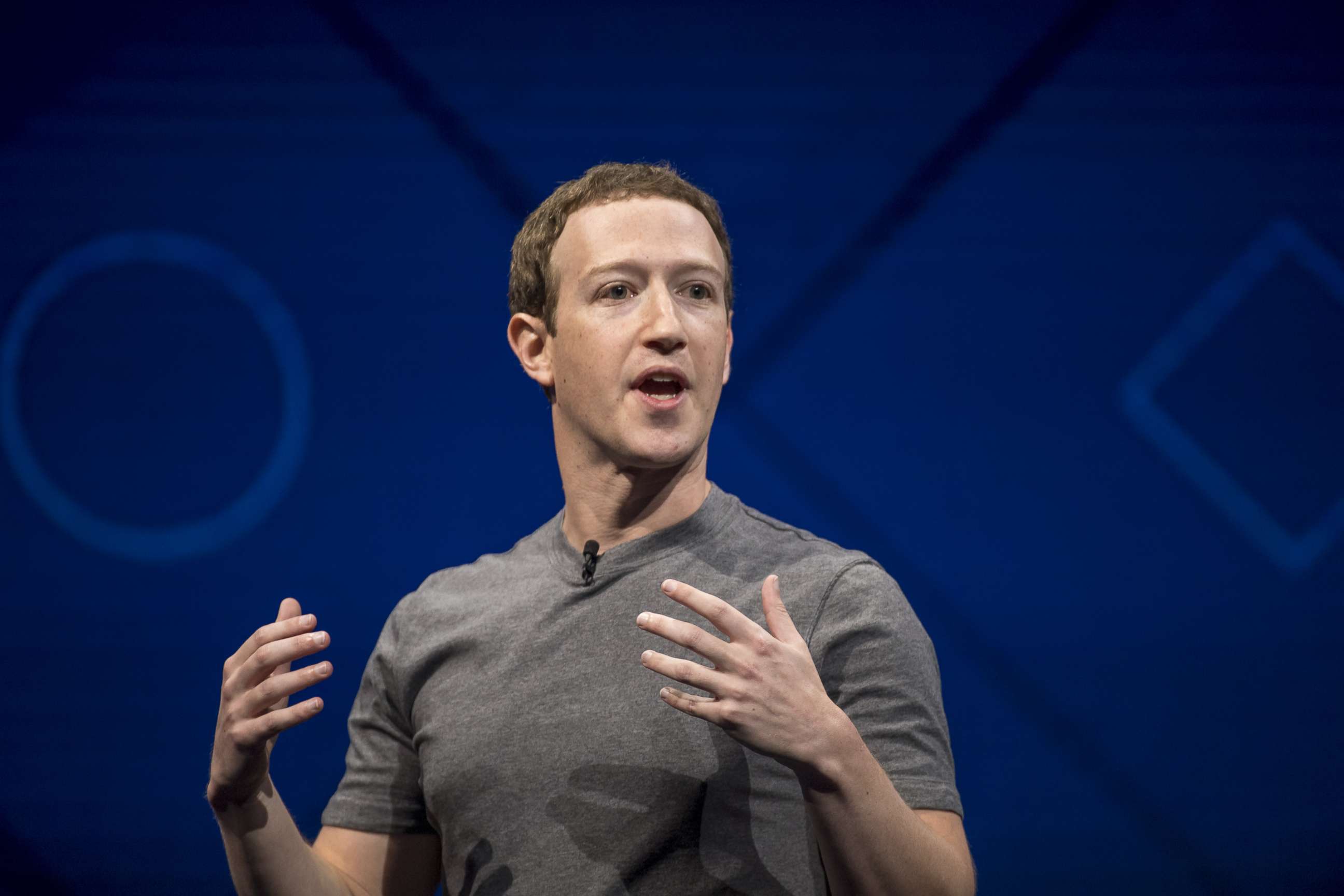Facebook announces new disclosure rules for political issue ads
The announcement comes as CEO Mark Zuckerberg appears before Congress nest week.
Facebook CEO Mark Zuckerberg, ahead of his first-ever testimony before Congress next week, announced new disclosure measures Friday for all issue and other politically-oriented ads, a move the billionaire businessman says he hopes will "prevent interference" in future elections.
"We believe that when you visit a Page or see an ad on Facebook it should be clear who it's coming from," Zuckerberg said in an online post announcing that the social media giant will now require disclosure on any issue ads that run on its platform.
The company plans to vet anyone who wants to show the ads, Zuckerberg said, and users will now see on-screen indicators that what they are seeing is a "Political Ad" and just who is funding it.
Zuckerberg said issue ads are "ads about political topics being debated across the country. We'll work with third parties to develop a list of key issues and will refine that list over time."
A separate Facebook post said examples may include "pro-life/pro-choice," Second Amendment ads or ads that express "support for public infrastructure, like new roads."
The additional measures come after Facebook announced similar disclosure requirements in October for election-related ads from political candidates.

Instituting the new disclosure requirements, in particular, was something Facebook initially was not keen to do, especially keeping a database of ads, but it gets at the heart of the alleged complex Kremlin-backed campaign to interfere in the 2016 elections in which a Russian organization - the Internet Research Agency - is accused of spreading disinformation online in the U.S. to stoke political and racial tensions, activity for which special counsel Robert Mueller indicted 13 Russians and three Russian companies – charges the Russians deny.
Zuckerberg, in his Facebook post said, "These steps by themselves won't stop all people trying to game the system. But they will make it a lot harder for anyone to do what the Russians did during the 2016 election and use fake accounts and pages to run ads."
"Advertisers that don't clear the process will be banned from running political ads on our platforms until they properly authorized," a spokesman told ABC.
To get authorized by Facebook, advertisers will need to confirm their identity and location.
Zuckerberg, saying his company "won't catch every ad that should be labeled," but Facebook will now encourage its users to report suspicious content.
"People can do this by tapping the three dots at the top right corner of the ad and selecting “Report Ad," Zuckerberg said.
In making the changes - for which the social media giant said it would hire new staff - Zuckerberg threw his support behind the Honest Ads Act, a measure authored by Sens. Amy Klobuchar, a Minnesota Democrat, and Mark Warner, the top Democrat on the Select Committee on Intelligence. The legislation garnered the support early on from Sen. John McCain, R-Ariz., long an advocate for more disclosure in elections.
“Most of the paid ads the Internet Research Agency ran on Facebook prior to the 2016 election didn’t mention Hillary Clinton or Donald Trump – but they did mention divisive political issues like guns, LGBT rights, immigration, and racial issues," Sen. Warner said in a statement. "That’s why today’s announcement by Facebook is so important, and I would encourage all of the platform companies to follow suit as we work toward making the Honest Ads Act the law of the land, ensuring that political ads sold online abide by the same disclosure rules as TV and radio ads.”




